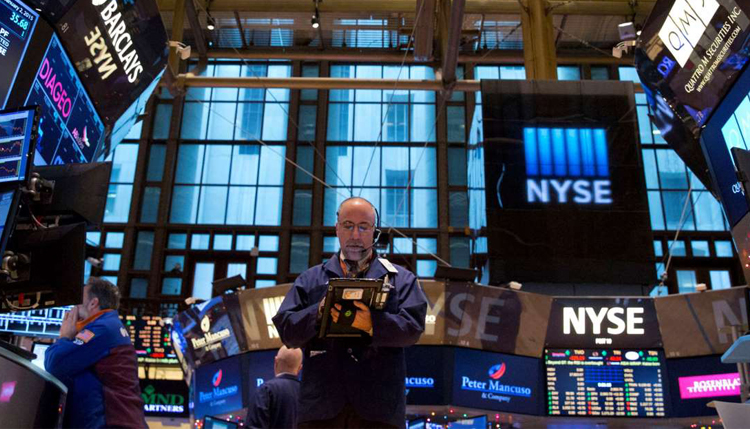U.S. stocks dropped sharply on Tuesday after Home Depot reported quarterly sales that fell short of Wall Street’s expectations and interest rates breached new highs, according to CNBC.
The Dow Jones industrial average fell 193 points to close at 24,706.41, with Home Depot among the biggest contributors of losses. The index also snapped an eight-day winning streak.
The S&P 500 declined 0.7 percent to 2,711.45 as health care and real estate stocks lagged. The Nasdaq composite dropped 0.8 percent to 7,351.63 as Amazon, Microsoft and Google-parent Alphabet all pulled back more than 1 percent.
The decline in U.S. equities came after Home Depot reported first-quarter earnings that beat Wall Street’s expectations, but its sales missed estimates thanks to what the company categorized as a “slow start” to spring sales.
Spring is an especially important season for the home improvement retailer as shoppers traditionally stock up on gardening supplies and renovation materials. Customer transactions, however, fell 1.3 percent during the quarter. Home Depot fell 1.6 percent.
“The Home Depot earnings did not help,” said Mark Esposito, CEO of Esposito Securities. “People are trading the market in short increments, but they’re not looking at the fundamentals” which are “still strong.”
Stocks also slipped after the Commerce Department reported retail sales increased 0.3 percent in April, down from a 0.8 percent gain in March, which was revised higher. The solid read on consumer spending, however, was accompanied by an uptick in interest rates, a move some market watchers blamed for a further decline in equities.
The benchmark U.S. 10-year Treasury yield, which moves inversely to its price, hit 3.09 percent on Tuesday, its highest read since 2011. The 10-year yield is especially important to investors given its role as a barometer for mortgage rates and other financial instruments.
The dollar index, which tracks the dollar against a basket of other currencies, was up 0.7 percent at 93.23.
“The consumer being alive and well is a positive, but just after eight days of being higher, the market’s looking for a reason” to pull back, said Art Hogan, chief market strategist at B. Riley FBR. “You’ve gradually seen a higher yield on that 10-year note, not draconian moves … [but] positive economic data is going to drive them higher.”
Hogan added that, while investors may have originally doubted that the Federal Reserve would be bold enough to hike rates four times in 2018, the market is gradually starting to “come around” to the idea that the Fed could hike rates in June, September and December.
Traders for the first time Monday assigned a 51 percent chance of a fourth interest rate hike this year by the Fed, according to the CME. The strong data Tuesday will only increase the ranks of traders and investors with that belief.
The Fed, tasked with keeping inflation around 2 percent and maintaining healthy employment levels, considers economic data when deciding whether to increase the benchmark federal funds rate. Despite a narrow CPI miss last week, personal consumption expenditures — the Fed’s preferred inflation metric — is now near the central bank’s target.
Overseas, the Stoxx Europe 600 was largely unchanged after data revealed a deceleration in euro-area economic growth to 0.4 percent in the first quarter, down from 0.7 percent in the fourth quarter of last year.
Germany, the euro zone’s largest economy, cooled to 0.3 percent growth in the first quarter, down from 0.6 percent in the prior quarter.


